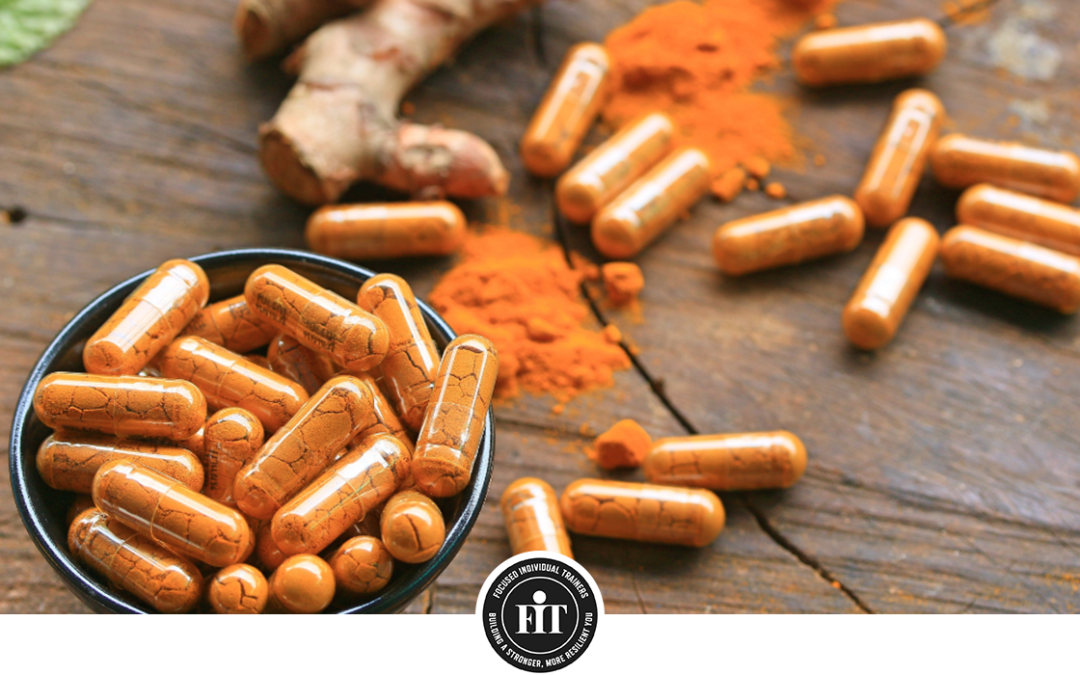Hormone Overview
Human physiology is controlled by a delicate and expansive hormonal network that is controlled and rooted in hypothalamic and pituitary function. These two structures in the brain are the control center for the many different hormone cascades in the body. Hormones control everything from hunger and satiety, to alertness and arousal, to fertility and stress response. Hormones are involved in digestion, detoxification, ovulation, fluid balance, heart rate, and so much more. These molecules are generally made on-demand and use a cascade of messages to produce a response either locally or globally within the body.
Think of hormones as a game of telephone – sometimes the messages can be lost in translation, sometimes the message doesn’t reach its intended target, and sometimes everything works and the message is relayed.
A few of these hormones are involved in our athletic performance and recovery, metabolism, sexual arousal and attraction, and reproductive function. These hormones include testosterone, progesterone, estrogen, luteinizing hormone (LH), and follicle-stimulating hormone (FSH). Both men and women have varying concentrations of these hormones which are dependent on activity level, eating strategy, sleep schedule, stress perception and experience, genetic predisposition, and age.
Each of these hormones play a role in our overall sexual health and athletic performance, and relay messages back to the control center (aka the brain, more specifically the pituitary and hypothalamus) regarding these lifestyle factors and activities of daily life. Because the balance between all these hormones is delicate, these rhythms can be thrown off which results in hormonal imbalance health issues.
Common hormonal imbalances in women include polycystic ovarian syndrome, endometriosis, adenomyosis, dysmenorrhea, amenorrhea, premenstrual syndrome, and premenstrual dysphoric disorder to name a few. These generally arise when particular hormones become dominant, overshadowing the other hormones and their roles in physiological functions. For example, estrogen dominance is common because of its close relationship with our stress hormone cortisol. When cortisol is increased, it can increase estrogen and decrease progesterone in women.
Hormonal imbalances in men are less common but can include testosterone insufficiency, adrenal insufficiency or fatigue, and estrogen dominance.
Recommendations for Imbalances
Recommendations from a certified nutritionist for balancing and restoring hormone levels…
- Increase fiber intake
Fiber allows for full detoxification of excess androgen (cholesterol-based) hormones via the digestive tract and liver. The USDA recommends 25 g of fiber per day minimum, but I will usually recommend that clients aim for 50-55 g of fiber per day.
- Increase Brassica vegetable intake for liver support
Brassica vegetables (including broccoli, cauliflower, brussel sprouts, turnips, cabbage, etc) all help with liver enzyme support and hormone detoxification. For men, increasing these veggies on a regular basis and for women, these vegetables are most useful during the second half of your cycle.
- Decrease sugar, processed foods, and non-fermented bread products
Sugar historically has always been detrimental to hormones, and now we see a more substantial effect with processed sugars, preservatives, artificial colors and flavors, and the many chemicals found in food in the US. Steering clear of these food additives can allow for optimal functioning of all hormonal systems.
- Increase lean protein and healthy fat intake
Healthy fats lend to androgen hormone production, as most if not all androgen hormones are produced from cholesterol and cholesterol derivatives. Supplementing with omega-3 fatty acids and omega-9 fatty acids will help to support healthy hormone production and regulate hormone feedback loops within the central nervous system.
Some favorable foods to increase dietary fats can include – pumpkin seeds, hemp seeds, chia seeds, and flax seeds as well as other nuts and seeds, avocados, extra virgin olive oil, and coconut oil. Generally, plant-based oils and fats will be much healthier and reduce exposure to pro-inflammatory markers found in animal fat.
- Increase regular consumption of oranges and orange juice
Orange juice contains a plant constituent that inhibits the enzyme that produces estrogen and downstream estrogen products.
- Support your sleep and sleep space in your home
Sleep is one of the most important determinants of health, and since we spend about 25-30% of our lives sleeping, it’s important to make sure not only is the quality of sleep good, but the space in which you are sleeping is prepared correctly. Interested in learning more? Speak with our sleep specialist JD for some great tips and insights into the vast world of sleep science.
- Decrease (if not eliminate) alcohol
Alcohol interrupts many hormones and their actions within the body, and can also impact the liver’s ability to detoxify the body of excess hormones. Alcohol also has an incredibly detrimental effect on sleep quality and insulin resistance, both impacting digestive efficiency and overall hormone status. Alcohol has even been shown to interrupt hormones altogether (eg. Stopping a period mid-bleed in women).
- Use stress management strategies
Stress isn’t always bad, it actually fuels our adaptability, survivability, and attentiveness, but when overwhelmed with many small stressors, our physiology will change over time. Developing several stress management strategies in your toolbelt will allow you to mitigate the effects of stress on the hormonal systems throughout the body and over time, reduce your body’s response to stressors. Our goal is to always increase resilience to stress, and practices like journaling, meditation, exercise, counseling, singing, family and friend support, and community all help to bolster your mental health and reduce mental fatigue over time.
- Supplement with herbs and vitamins that support healthy hormone production
Though hormones are complex, they can be addressed through supplementation and diet. Resources like functional medicine providers, and endocrinologists are all well-versed in hormone support and therapy, as well as extensive diagnosis and scientific understanding of these hormones.
There are many ways our hormones can be affected by our daily lives, but on the positive side, we can also control for some of these variables. Eating well, paying attention to recovery, listening to your body’s needs, and prioritizing healthy habits will allow the body to function at its best. Over time, these small but significant changes can create a positive shift in your overall health and wellness.
Sign up for FiT’s Health Optimization and Wellness Blog
![]() 600 Rancho Shopping Center, Los Altos CA 94024. | 650-947-9831
600 Rancho Shopping Center, Los Altos CA 94024. | 650-947-9831
Get Directions | Email Us | Jobs | Follow us:
Kristin Pampeyan
Trainer
Spirit Animal: Bumblebee
What I love about FiT: That everyone is invested in the community whether it’s by hosting additional activities or sharing knowledge. It’s all to make each other better and help out the clients.
Favorite sports: Swimming and Softball

Dae-Von Bishop
All the way from East Palo Alto, Dae-Von was an avid basketball player and fan since the age of 10. From Eastside College Prep to Sonoma State to Foothill where he received his AA in psychology. Dae-Von developed a passion for training and helping others stay active and healthy after a bad ankle sprain in high school that occurred during the basketball season. Dae-Von received training the following summer at The Riekes Center, leading him to have a healthy senior year season as well as making 2nd team all league.This is what inspired him to become a trainer and help other athletes stay in great shape. At 20 years old, Dae-Von’s personal training journey began at The Riekes Center, and he hasn’t looked back since.
Dae-Von holds certifications in personal training through NASM, archery, as well as speed and agility and weightlifting both through NSPA. He even will do some basketball skill development on the side for young hoopers. His goal is to help people stay as fit and active as possible with little to no complications. I love training groups of athletes in either middle or high school. Those age groups tend to be the best time for athletes to get faster and stronger, as well as they begin to understand movement patterns which allow them to perform at an elite level. There is also a natural competitive aspect of training in groups that pushes kids to go harder during drills.
In his free time, you can find Dae-Von shooting hoops, working out, playing video games, spending time with friends, trying new foods(as long as there is no avocado), or hanging out with his frenchie, Trouble.
- Personal Trainer (NASM)
- Certified Speed and Agility Coach (National Sports Performance Association)
- Certified Weightlifting Coach (National Sports Performance Association)
- Archery Lvl. 2 (USA Archery)

Megan Justice

Jon Angeles

James Frederick
Trainer
Spirit Animal: Orca
Contact
- Dynamic Variable Resistance Training (DVRT) Level 1 Certification
- Certificate in Nutrition (FAB Academy)
- Certificate in Applied Stretching Theory and Practice (FTP)
- NASM-CPT

Jake Verhulp

Hannah Golden

Serena Earwicker
Operations Manager
Spirit Animal: Owl
Contact
Serena manages the day-to-day operations at FIT. If you need help with something apart from training, she is the one to get it done.
Outside of FIT you will find Serena hiking, biking and playing at the beach with her family.
What I love about FiT: FiT is welcoming and supportive to all. It feels like a hug, a sweaty one. Haha
Favorite sports: Anything I get to see live! Love the energy.

Tracey Downing
Owner
Spirit Animal: Owl
Contact
Tracey Downing has dedicated her life’s journey to empowering individuals to discover newfound confidence in their physical abilities and take command of their long-term well-being. Together with her husband, Thom, she established FiT, a health promotion company, in 2000, impacting numerous lives by guiding them towards positive lifestyle shifts and instilling the importance of prioritizing their health.
Her academic journey at the University of Michigan, where she graduated with a degree in Kinesiology, was complemented by a vibrant period of exploration. Tracey’s adventures took her across the globe to live in places like New Zealand, Ireland, and Scotland. These enriching experiences allowed her to indulge her passion for travel while simultaneously nurturing her professional growth, with roles in clinical and professional sports settings.
Beyond her entrepreneurial pursuits, Tracey treasures her role as a mother to two wonderful children. Outside of her business endeavors, she has completed an Ironman Triathlete, a testament to her unwavering determination, had the incredible honor of being an Olympic Torch Bearer for the Salt Lake City Olympics, and is a 20 year survivor of breast cancer.
In Tracey’s world, fostering physical wellness is not just a profession; it’s a lifelong vocation driven by a genuine desire to inspire and uplift others on their unique journeys toward lasting health and vitality.
What I love about FiT: Seeing people change: doing more than they thought they could, learning more than they thought they would, and showing up to make themselves better.
Favorite sports: Playing tennis and watching anything my kids are playing

Brett Lando
Physical Therapist
Spirit Animal: Cheetah
Contact
Brett grew up in San Francisco and attended St. Ignatius College Preparatory where he ran cross-country and track and field. After graduating from high school, he attended the University of California, Irvine where he earned his Bachelor’s degree in Biology. While at UC Irvine he competed on the cycling team in road and cyclo-cross races and helped manage the campus bike shop.
Brett graduated with his Doctorate of Physical Therapy from the University of California San Francisco/San Francisco State University. He is a graduate of Agile’s yearlong Orthopedic Residency, is a Board Certified Orthopedic Clinical Specialist and most recently completed a yearlong Fellowship in sports and manual therapy.
In his free time, Brett enjoys road cycling, the occasional triathlon, alpine skiing, surfing, backpacking, traveling and cooking with his wife.
What I love about FiT: The TEAM, Learning new exercises from the trainers, and a variety of fun, innovative exercise equipment.
Favorite sports: Cycling, Skiing, Surfing
- Doctor of Physical Therapy
- Board- Certified Clinical Specialist in Orthopaedic Physical Therapy
- Fellow of the American Academy of Orthopaedic Manual Physical Therapists

Kendra Wagers
Massage Therapist
Contact
Kendra Wagers has been a Massage Therapist since 2001. A native to California, she began her massage career in the Central valley working with various injury and chronic pain methods under experienced Chiropractors and physical therapists. In 2003 she relocated to Las Vegas, NV to attend the Nevada School of Massage Therapy’s accredited massage program which led to obtaining her National certification from NCBTMB. For over 13 years she worked as a licensed massage therapist in Nevada, including employment at top rated Spas on the Las Vegas strip. Receiving training in various modalities over the years including; Hawaiian Lomilomi, Thai, Sports and Shiatsu. In January of 2017 Kendra decided to return to California and is currently enrolled in the Traditional Chinese Medicine program at Five Branches University, furthering her education on overall health and wellness. With more than 17 years of experience and over 1500 hours in training Kendra has been able to hone in on her passion for healing while combining multiple techniques to provide a personalized and detailed massage to every guest. Her serene approach combined with her roots in structural techniques, offers harmony, balance, and ease to injuries or everyday stresses.
CA State Massage License #73011

Katie Deangelis
- American Council on Exercise
- Crossfit Level One
- NSCA Certified Strength and Conditioning Specialist, In Progress
- Precision Nutrition Level 1 Certified, In Progress

Kevin Martin
Strength and Wellness Coach
Personal Trainer
Certified Strength and Conditioning Specialist
OPEX CCP
Spirit Animal: The Lorax
Contact
Kevin graduated from Trinity University in San Antonio, TX with a B.S. in Business Administration with a focus in marketing. As a student, Kevin was a five-time conference champion in the 1-meter and 3-meter springboard diving events. He is a Certified Strength and Conditioning Specialist with the National Strength and Conditioning Association.
He has a particular passion for rehabilitation and improving overall functional status. He enjoys identifying and correcting areas of the body that are not operating at their full potential so that everyone can live life to the fullest!
Kevin has completed a full ironman, multiple 70.3 triathlons, 2 full marathons, as well as several shorter distance triathlons and road races. In addition to triathlon, he has a background in gymnastics, swimming, diving, and volleyball. He enjoys helping everyone find the athlete within themselves and find a love for movement and exercise.
When Kevin isn’t training at FiT or exercising, he enjoys cooking, surfing, hiking, and spending time with his wife and dog. He especially loves being a father his young daughter Mayley.
What I love about FiT: Community, Hard work, Supportive, Fun
Favorite sport: Volleyball, Surfing, Diving, Running, Cycling, Swimming (triathlon), Weight lifting. I love watching all sports.

Tyler Pinkney
- 4 years of collegiate coaching experience
- Former Division I Athlete
- Assisted multiple athletes to the professional level
- Certified Strength and Conditioning Specialist, National Strength and
- Conditioning Association
- Basic Olympic Lifting Certification, Totten Training Systems
- Bachelors of Science in Psychology
- Masters of Education in Coaching, Sport, Recreation, and Fitness
- Administration

Juliana Oliveira
Trainer
Spirit Animal: Dolphin
Contact
What I love about FiT: I love the schedule flexibility.
Favorite sports: Snorkeling and swimming

Angelo de la Cruz
Orthopedic Massage Therapist & Personal Trainer
Spirit Animal: Wolf-bear-dragon-unicorn beast
Contact
While studying biological sciences at Cal Poly SLO, it became clear that my health was suffering. I was always tired, I couldn’t sleep well, I had digestive issues, and my emotions would swing dramatically at times. The realization came that in order for me to enjoy life to its fullest, I had to get serious about improving the quality of my health.
Since then, I’ve studied with doctors, physical therapists, clinical nutritionists, physical trainers, bodyworkers, and top innovators in the field of health & wellness. Instead of chasing the symptoms of illness, the most effective approaches to well-being are those that work to eliminate things that degrade health AND instill lifestyle habits that allow the natural environment of our bodies and mind to operate as efficiently as possible. In this way, we can be lead lives with less pain & sickness.
My work aims to use the technology of the body to help you live a more vibrant & productive life.
Some of the things I have fun doing are Olympic Weightlifting, breakdancing, parkour & free-running, snowboarding, creating electronic music, digital art photography/ videography, competing in American Ninja Warrior (My competition run is here) & learning about quantum physics.
What I love about FiT: Uplifting, motivating, supportive
Favorite sport: Martial Arts, ninja warrior obstacle courses, break dancing
- Former Life Science Support Scientist at NASA Ames Research Center
- Certified High Performance Coach
- 2nd Degree Black Belt in Taekwondo
- CrossFit – Level 1 Certification
- USA Weightlifting Club Coach Certification
- Intrinsic Coach Certification – Life & Health Coaching
- BS Anatomy & Physiology
- American Massage Therapy Association – Professional Member
- Nationally Certified in Therapeutic Massage & Bodywork
- Certified Hendrickson Method Instructor
- Primal Reflex Release Instructor
- Certified Massage Therapist
- Certified Functional Diagnostic Nutrition Practitioner

Shaun Conness
- USAW Club Coach
- NASM Certified Trainer
- TPI Golf Fitness Instructor
- CHEK Practitioner Level 1
- CHEK Certified Golf Biomechanics Specialist

Jennifer Mulry
Personal Trainer
Spirit Animal: Bear
Contact
What I love about FiT: I love the family atmosphere at FiT and the collective effort to all be the healthiest version of ourselves.
Favorite Sport(s): Basketball & Swimming

Jeff Samson
Trainer
Martial Arts Trainer
Assisted Stretch Practitioner
Spirit Animal: Blue Whale
Contact
What I love about FiT: Great space, staff, clients, ability to pursue my passions
Favorite sport: Jiujitsu


